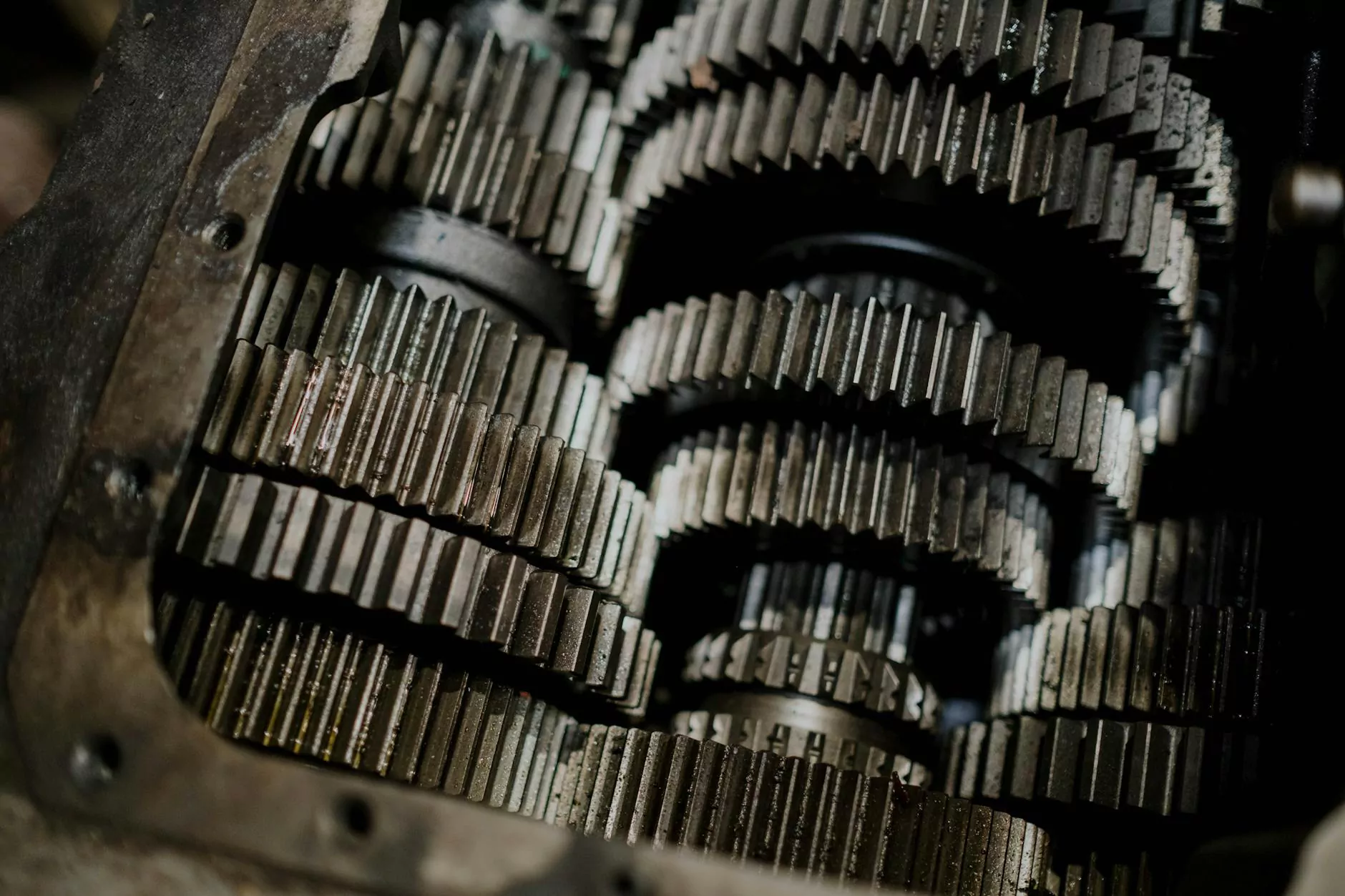The Ultimate Guide to Gearbox Converters: Transforming Your Automotive Experience

Gearbox converters play a crucial role in enhancing the performance and efficiency of vehicles across the globe. As an essential component in the automotive industry, understanding how these devices work and their benefits can significantly improve your driving experience and help you make informed decisions when it comes to automotive parts and supplies.
What is a Gearbox Converter?
A gearbox converter, often referred to as a torque converter, is a type of fluid coupling used to transmit power from the engine to the transmission in an automatic vehicle. Unlike a standard manual transmission where gears are changed sequentially, a gearbox converter enables smooth gear changes without the need for a clutch pedal. This innovation not only facilitates a more comfortable driving experience but also improves fuel efficiency in automatic vehicles.
How Does a Gearbox Converter Work?
The operational principle behind a gearbox converter is relatively straightforward yet ingeniously effective. Here’s a breakdown of the key components and their functions:
- Impeller: Connected to the engine, the impeller spins and generates a centrifugal force, which creates a flow of transmission fluid.
- Turbine: The turbine is linked to the output shaft of the transmission and is driven by the flow of fluid from the impeller, resulting in the vehicle's movement.
- Stator: Positioned between the impeller and turbine, the stator redirects fluid returning from the turbine to the impeller for improved efficiency.
During operation, when the engine is running, the impeller spins and moves fluid through the converter. This fluid movement causes the turbine to turn, thus transferring power to the transmission. One of the key benefits of a gearbox converter is its ability to multiply torque at lower speeds, providing greater power for acceleration.
The Benefits of Gearbox Converters
Understanding the advantages of using a gearbox converter can help vehicle owners appreciate its importance. Here are some of the significant benefits:
1. Enhanced Fuel Efficiency
One of the most significant advantages of a gearbox converter is the enhancement of fuel economy. By enabling smoother transitions between gears, torque converters optimally utilize engine power, reducing fuel consumption during acceleration.
2. Smooth and Seamless Performance
Drivers enjoy a more seamless driving experience because the torque converter eliminates the need for manual gear shifts. This is especially beneficial in stop-and-go traffic, where consistent acceleration and deceleration can be cumbersome with a manual transmission.
3. Increased Torque Multiplication
Torque converters are designed to multiply torque during acceleration, providing vehicles with the extra power needed to start moving or climb steep inclines. This feature is vital for heavy vehicles or those transporting loads.
4. Adaptive Functionality
Modern gearbox converters come equipped with smart features that adapt to driving conditions. For instance, they can adjust the stall speed based on throttle position and load, ensuring optimal performance in various scenarios.
5. Reliability and Durability
The robust construction of gearbox converters ensures they can withstand the rigors of everyday driving. With proper maintenance, they can provide reliable service over an extended period, making them a valuable investment for vehicle owners.
Types of Gearbox Converters
As the demands of the automotive industry evolve, several types of gearbox converters have emerged, catering to various vehicle types and performance requirements:
1. Traditional Torque Converters
These are the most commonly found gearbox converters in automatic transmissions. They provide a good balance of performance and efficiency, suitable for everyday driver needs.
2. Lock-Up Torque Converters
Lock-up converters feature a mechanism that "locks" the engine and transmission together at higher speeds, preventing slip and optimizing fuel efficiency. This feature is highly beneficial for highway driving.
3. Variable Geometry Torque Converters
This advanced type offers better adaptability across different driving conditions, allowing the converter’s geometry to change based on driver inputs and environmental factors. It provides an optimal compromise between performance and economy.
Choosing the Right Gearbox Converter
When selecting a gearbox converter, several factors must be considered to ensure compatibility and retention of optimal vehicle performance:
- Vehicle Make and Model: Ensure the gearbox converter matches your vehicle’s specifications for a perfect fit.
- Power Requirements: Assess your engine's power output to select a converter that can handle its power demands.
- Driving Conditions: Identify your driving style and conditions to determine the ideal type of converter for your needs.
- Budget: Consider the cost of the gearbox converter along with its long-term benefits. Investing in a high-quality converter can pay dividends in fuel savings and performance.
Maintenance of Gearbox Converters
Proper maintenance of gearbox converters is essential to ensure their longevity and reliability. Here's how you can take care of this critical component:
1. Check Fluid Levels Regularly
Transmission fluid is vital for the operation of a gearbox converter. Ensure fluid levels are optimal and top up as necessary to prevent overheating and ensure smooth operation.
2. Change Fluid as Recommended
Regularly changing the transmission fluid according to the manufacturer’s recommendations can significantly extend the lifespan of the gearbox converter.
3. Inspect for Leaks
Regular inspections help identify any leaks in the system. Addressing leaks promptly can prevent more extensive and costly repairs down the line.
4. Monitor Performance
Be mindful of any changes in how the vehicle drives. Slipping gears or unusual sounds during operation can indicate potential issues with the gearbox converter or transmission system.
Conclusion: The Future of Gearbox Converters in Automotive Industry
As technology continues to advance, the role of gearbox converters in the automotive industry is likely to expand. Innovations in materials, design, and functionality will ensure that these components remain vital in enhancing vehicle performance and efficiency. By understanding their importance, benefits, and maintenance requirements, vehicle owners can appreciate the value of gearbox converters and make knowledgeable decisions for their automotive needs.
Whether you are looking to replace an aging gearbox converter or simply want to learn more about how they work, understanding these components can lead to better driving experiences and vehicle longevity. For high-quality gearbox converters and automotive parts, visit shenghaiautoparts.com today.









